Field testing new handwashing kit prototype in Tanzania
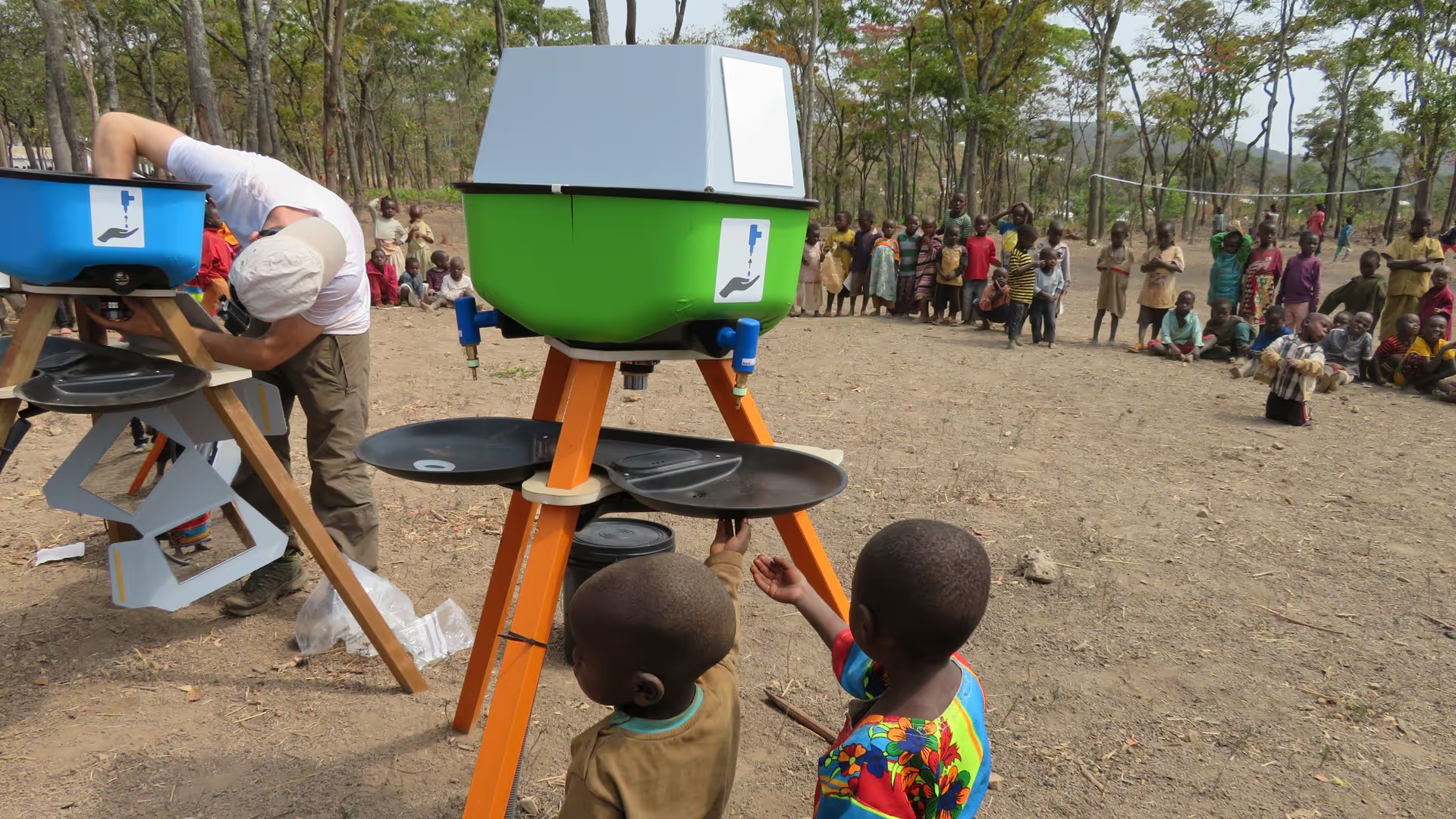
Following the evolution of the Handy Wash Tap (an innovative water saving/hygienic tap – see video), a new prototype for a freestanding handwashing station has been produced and field-tested in collaboration with Oxfam, SPARK Product Creation and Dunster House Ltd – and with funding from the HIF.
The new design was tested at Oxfam House in Oxford in July 2017, before being deployed to Tanzania in August – with the aim of evaluating durability and usability in a refugee camp. Nduta camp (north-west Tanzania) was chosen because refugees continue arriving regularly from Burundi, making it an ideal setting to trial handwashing stations next to newly constructed latrines for the new influxes. My role was to lead the field test.
On my arrival, I quickly saw how challenging it is to wash your hands without free running water. The commonly used Tippy-Tap (a jerry-can and foot pedal to tip soap and water over your hands) works well for an able bodied adult; for children it can be a bit of a shower at the same time, and is not so easy for the elderly. A simple rule of thumb in design is: if it’s not practical, people won’t use it.
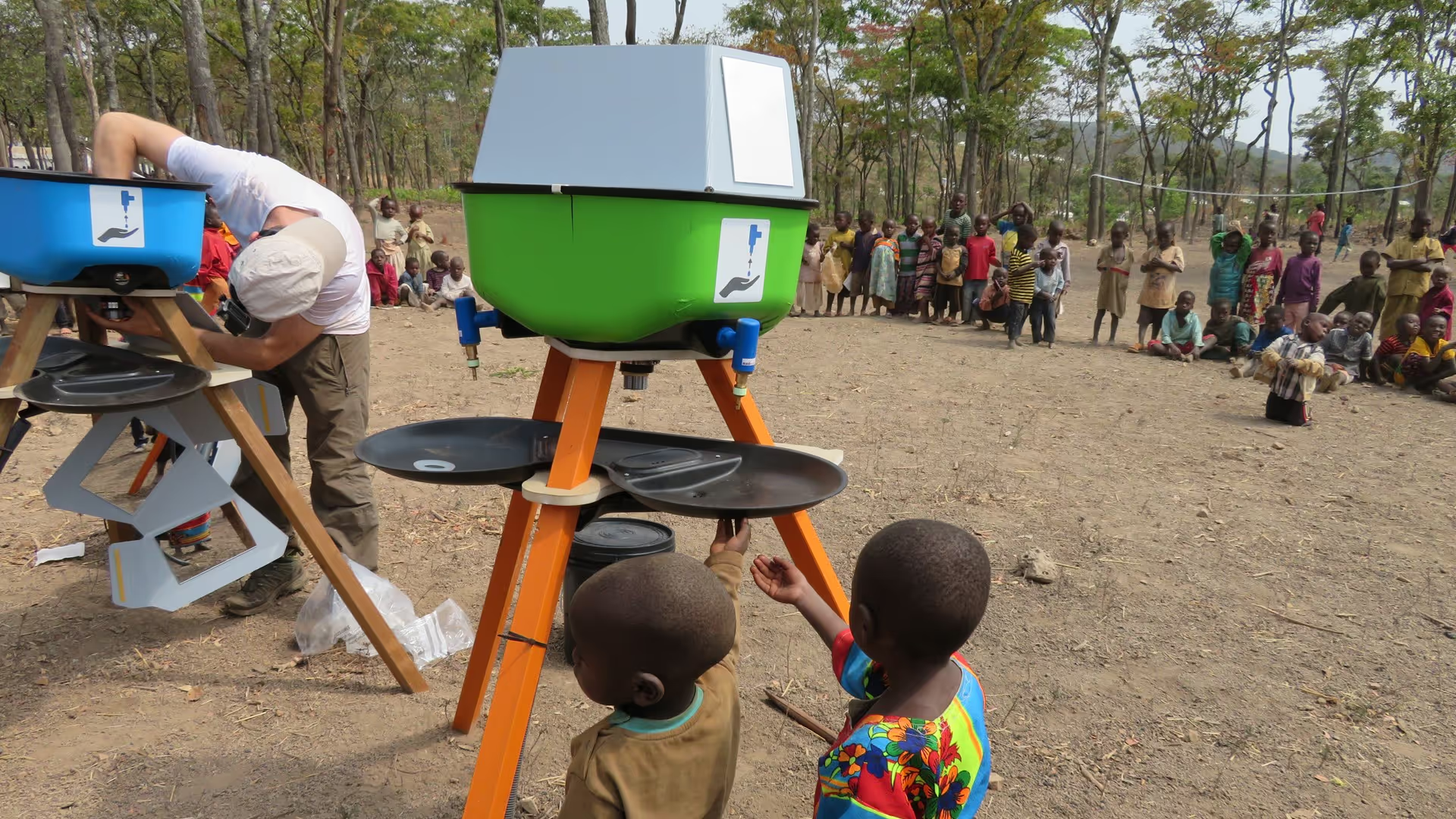
The prototype I was there to test constitutes:
- 3 wooden legs
- 2 Oxfam Handy WaSH taps
- a plastic vacuum-formed 25lt water tank and water collection tray, which stops water splashing over people
- WPC (wood plastic composite) pieces which hold everything together
- corrugated plastic lid
- adult and child angled mirrors, which attract people to use the kit
- soap in a net on string
- a hose for water runoff
The cost we are aiming for is significantly low - around the same as two sets Tippy-Taps, but could be shared between two houses to balance the cost.
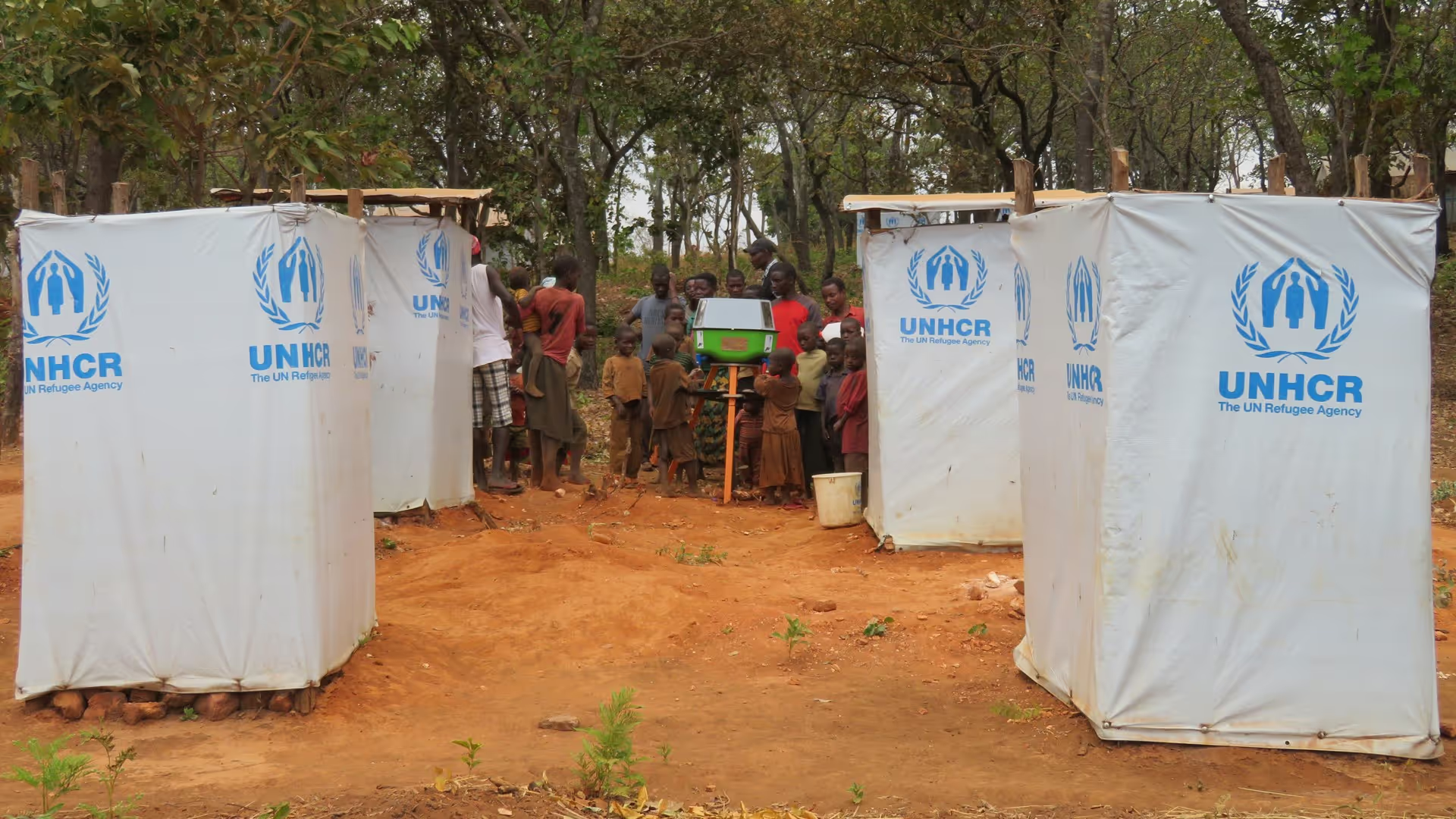
We chose two locations within the camp to test the prototypes; a small village and an outdoor school. The camp village consisted of four families - we met to discuss the project, and with their consent and excitement we removed their two Tippy-Tap systems and installed one handwashing station between the two shared latrines and bathing areas. The legs were inserted three inches into the ground for stability, a hole was dug for drainage and filled with stones to absorb the water, and two bars of soap in nets on string were secured to the water collection tray. The village WaSH monitors volunteered to collect water and replenish when needed - this was once a day (20 litres), and an Oxfam volunteer was hired to monitor the usage of the kit throughout the day.
Some first impressions from the villagers:
“We like it very much, it is easy to use for everyone”
“I like that you use less energy, no need to push your foot down”
“We are worried that someone can dismantle it or the whole system can be stolen so how will we protect it?” (answer from another villager: ‘This is a good system so we must protect it until the end of the test’)”
“We appreciated the system, how the water flows, the presence of the mirror lets me see how I look which I very much like”
“Very easy for the children”
“In rainy season, can it be stable? Heavy rain and strong wind is a big issue”
“We like that no water drops are directed to our legs like the Tippy-Tap”
“We think there should be one in all latrine block in all villages across the camp”
“We are happy thank you very much, you have done a nice thing”
The school facilitates over 1000 children a day. There were separate boys' and girls' latrines, but no handwashing facilities had yet been installed. We met with volunteer teachers who looked after the kit and, as it was freestanding, they stored it safely away every night to minimise vandalism or theft.
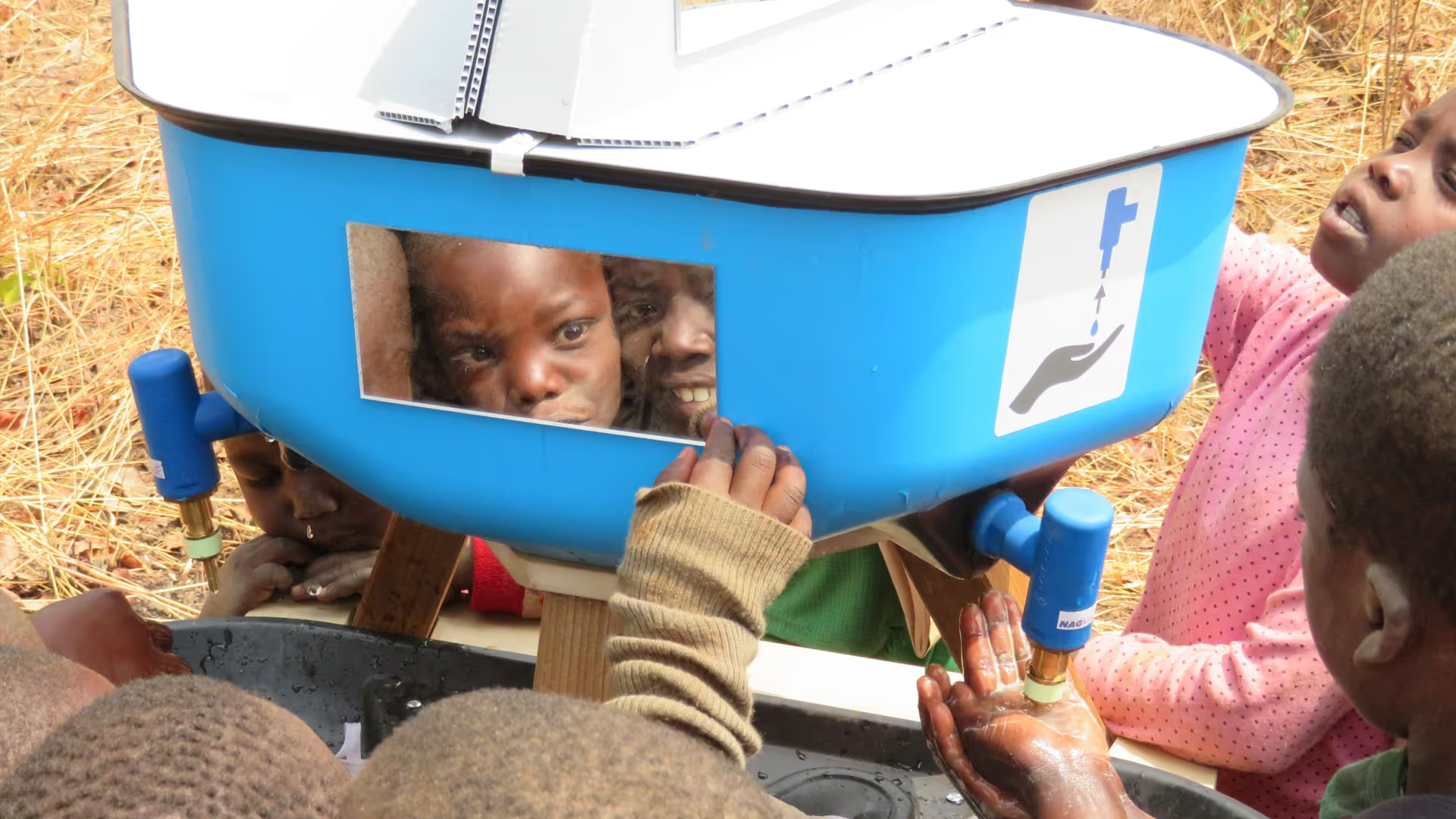
Children’s comments:
“As a child using a tippy-tap you get completely covered in soap and water, so I like this”
“It is easy to wash your hands and you get to look in the mirror”
“In Kirundi we call tippy-tap ‘push leg to wash hand’; for this we can call it ‘touch me to wash hand’”
“The tap conserves water so you only get what you need, which is good”
Teacher’s comments:
“High commodity value that looks durable and sustainable”
“The kit is very attractive and the mirror attracts the user to wash their hands”
“We think there is a high chance of vandalism”
In both locations, the prototypes were well received and after a week of use the real question was - will the kit increase hand washing when the novelty settles? We left both kits in the camp to be tested over a longer period, and will now focus on iterating the design for larger scale production and longer duration testing.
Joel Trotter is an independent designer, innovator and researcher.
Stay updated
Sign up for our newsletter to receive regular updates on resources, news, and insights like this. Don’t miss out on important information that can help you stay informed and engaged.
Related articles
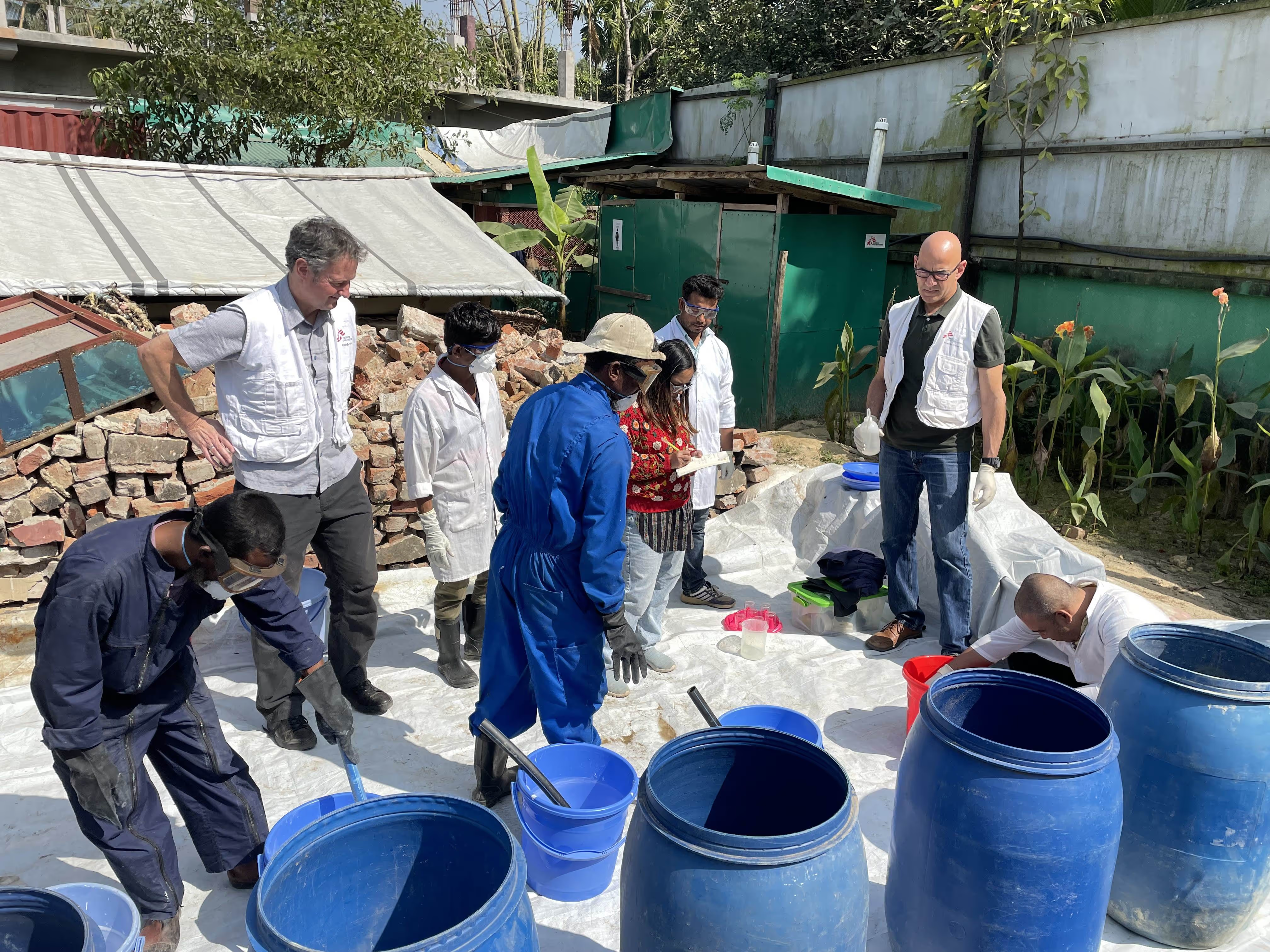

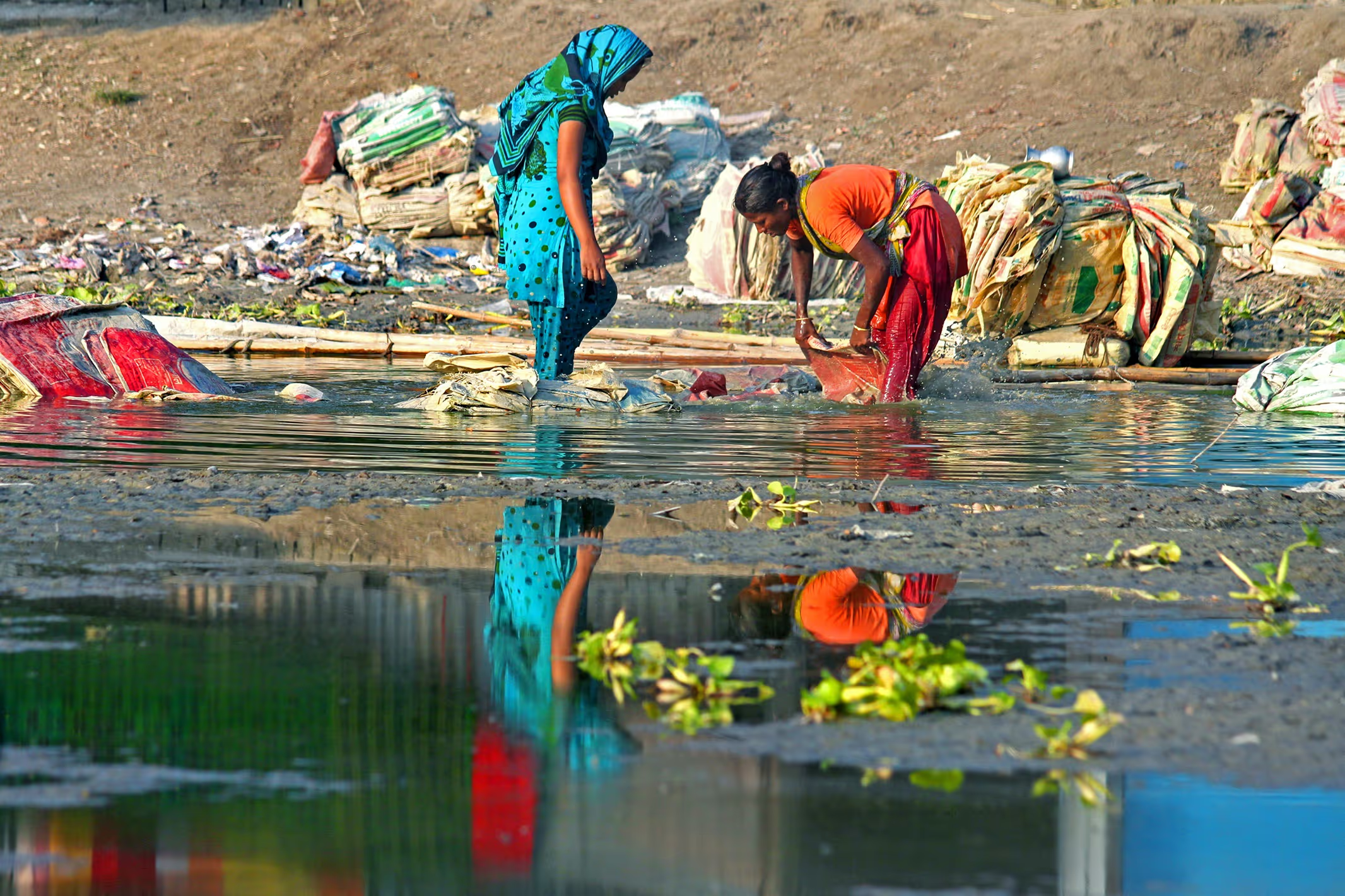
Explore Elrha
Learn more about our mission, the organisations we support, and the resources we provide to drive research and innovation in humanitarian response.